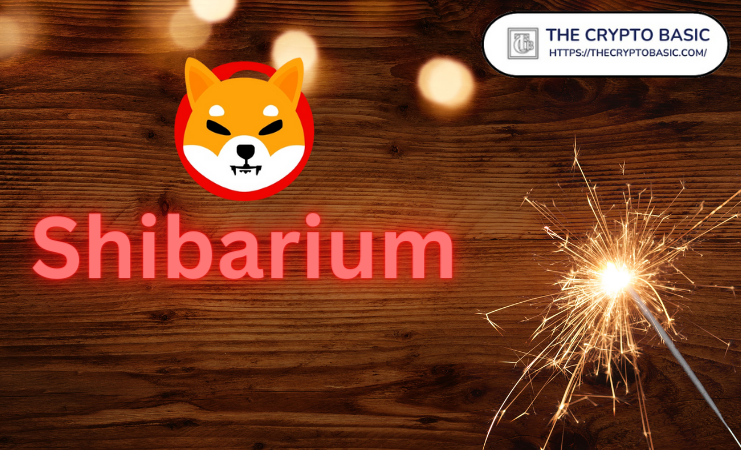Shiba Inu has shared the steps required to become validators and delegators on Shibarium.
It is common knowledge that Shiba Inu’s much-anticipated Layer-2 network Shibarium is tipped to offer numerous benefits, including cheap, fast, private, and secured transactions.
Interestingly, the upcoming L2 network is also expected to give Shiba Inu community members a chance to stake BONE tokens to become Shibarium validators and delegators.
Difference Between Validators and Delegators
Before delving further, it is important to understand the difference between validators and delegators within the upcoming Shibarium L2 network.
Shibarium Validators
Shibarium Validators are nodes responsible for validating and verifying transactions on Shibarium to maintain the integrity of the blockchain. It bears mentioning that these nodes are run by entities known as validator operators.
Validators will maintain Shibarium’s integrity by verifying the validity of transactions to ensure that they meet the network’s rules. In a recently published article, Shiba Inu said validators are important members of Shibarium, whose focus is to contribute to the operability and security of the network by locking a certain number of BONE tokens. Validators will earn rewards through the validation and verification of transactions.
Notably, rewards are distributed to validators based on the number of BONE tokens they have staked.
Shibarium Delegators
On the other hand, Shibarium Delegators are BONE token holders who do not want to run the network’s validator node. As part of efforts to secure Shibarium, they can delegate their stake to a validator. These individual entities can participate in a Delegated Proof-of-Stake (DPoS) by delegating their voting rights to a validator node.
The DPoS consensus mechanism allows a selected group of validators to be chosen by delegators via a voting process. The selected validator operators will now be tasked with validating transactions and creating new blocks on Shibarium.
How to Become Shibarium Validators and Delegators
With the Shibarium Beta launch around the corner, Shiba Inu has revealed the enrollment process community members can follow to become validators and delegators on the network.
Becoming A Shibarium Delegator
The steps to becoming a Shibarium Delegator are simple. The only requirement is to stake your tokens on your preferred validator. Notably, there is no limit to the number of delegators that can join the network.
However, the total number of delegators is limited to the available Shibarium stakes. Delegators must hold a particular amount of Shibarium’s native token to play a role in the network’s validation process.
How to Enroll as a Shibarium Validator
Becoming a validator has a more stringent requirement. Notably, the number of Shibarium validators is limited to only 100 slots. Each validator must stake a minimum of 10K units of BONE, worth $14K at the time of writing.
Shiba Inu said it would conduct a manual selection process for Shibarium validators, who must submit applications and attend interviews before they are considered.
“The onboarding of these Validators will be done taking into account the experience, trust, knowledge and ensuring that these validators are committed to the health and integrity of Shibarium,” Shiba Inu said in a statement.
Since Shibarium validators’ slots are limited, new and intending validators can only be selected when an active member leaves or is kicked out of the network.
Rewards/Commissions for Validators and Delegators
Notably, commissions are paid to validators for operating and maintaining the nodes. In contrast, rewards are distributed to validators and delegators based on the number of tokens they have staked.
According to Shiba Inu, a percentage of BONE tokens is assigned to Shibarium validators and delegators whenever a checkpoint is reached. Furthermore, the system will allocate a portion of TREAT tokens to Shibarium validators and delegators. It is worth noting that the TREAT token is not yet available.
Distribution of Rewards and Commission
Below is an example of rewards distribution for Shibarium validators and delegators.
If, during checkpoint time, the system wants to distribute 100 units to a validator (who has 20K tokens staked and a 10% commission rate) and two delegators: A and B, who have 12K and 8K tokens staked, respectively, the rewards distribution will be as follows:
From the above, 40K BONE tokens are staked, representing 50% from the validator and 50% from two delegators.
The validator will first receive the 10% commission rate from the rewards of 100 units (10% of 100). This implies that the validator will first receive ten units for maintaining and operating the nodes. With this, the reward is down to 90 units.
Furthermore, the validator will receive 50% of the 90 units of rewards available based on the number of tokens staked. The validator will receive another 45 units from this, thus bringing its total reward to 55 units.
Based on their stakes, the remaining 45 units will be distributed to the delegators. Since Delegator A has more tokens staked, representing 30% of the entire stake, his reward will be 27 units. In contrast, Delegator B, who has 20% of the entire staked tokens, will have a reward of 18 units.
DisClamier: This content is informational and should not be considered financial advice. The views expressed in this article may include the author's personal opinions and do not reflect The Crypto Basic opinion. Readers are encouraged to do thorough research before making any investment decisions. The Crypto Basic is not responsible for any financial losses.


